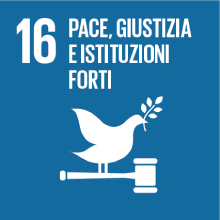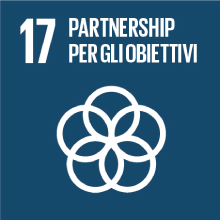HISTORY OF INTERNATIONAL RELATIONS ADVANCED COURSE
- Anno accademico
- 2020/2021 Programmi anni precedenti
- Titolo corso in inglese
- HISTORY OF INTERNATIONAL RELATIONS ADVANCED COURSE
- Codice insegnamento
- LM3140 (AF:330620 AR:176164)
- Modalità
- Crediti formativi universitari
- 6
- Livello laurea
- Laurea magistrale (DM270)
- Settore scientifico disciplinare
- SPS/06
- Periodo
- I Semestre
- Anno corso
- 1
- Spazio Moodle
- Link allo spazio del corso
Inquadramento dell'insegnamento nel percorso del corso di studio
Risultati di apprendimento attesi
a) a confident knowledge of the main events, actors, and processes pertaining to the history of international relations in the 20th and 21st centuries;
b) a confident knowledge of the literature on a specific set of subjects;
c) the ability to read and interpret critically a monographic work in international history, to locate various themes of international history in their proper historical framework, and to express their critical opinion on international affairs based on sound historical knowledge;
d) the ability to communicate their knowledge with clarity and precision, and to take part in debates about international affairs;
e) the ability to develop their competence in the field of international history in an autonomous and self-organized manner.
Prerequisiti
Contenuti
Testi di riferimento
RECOMMENDED READINGS:
A) Attending students:
1) One of the following volumes:
a) Jussi Hanhimaki et al., International History of the 20th Century and Beyond, London, Routledge, 2014 or later editions, chapters 2-5, 7-13, 15-18, 20-21, 23;
b) any other comparable textbook that you may already possess, after discussing the matter with the teacher;
2) the classnotes and the materials uploaded by the teacher on moodle (slides, videos, documents, etc.);
3) at least one of the volumes listed under the heading "Monographs for choice" below.
B) Non-attending students:
1) One of the following volumes:
a) Jussi Hanhimaki et al., International History of the 20th Century and Beyond, London, Routledge, 2014 or later editions;
b) any other comparable textbook that you may already possess, after discussing the matter with the teacher;
2) at least two of the volumes listed under the heading "Monographs for choice" below.
Monographs for choice:
E. Helleiner, States and the Reemergence of Global Finance, CUP, 1994;
V. Prashad, The Darker Nations. A People’s History of the Third World, New Press, 2007;
C.S. Maier, Dissolution. The Crisis of Communism and the End of East Germany, PUP, 1997;
H. Brands, Making the Unipolar Moment. US Foreign Policy and the Rise of the Post-Cold War Order, CUP, 2016;
A. Tooze, Crashed. How Ten Years of Financial Crises Changed the World, Viking, 2018;
E. Helleiner, The Status Quo Crisis: Global Financial Governance After the 2008 Meltdown, OUP, 2014;
G. Garavini, The Rise and Fall of OPEC in the Twentieth Century, OUP, 2019;
P. Gleijeses, Visions of Freedom. Havana, Washington, Pretoria, and the Struggle for Southern Africa, 1976-91, UNCP, 2013;
P. Gleijeses, Conflicting Missions. Havana, Washington, and Africa, 1959-1976, UNCP, 2003;
G. Garavini, After Empires: European Integration, Decolonization and the Challenge from the Global South, 1957–1986, OUP, 2012;
M. Mazower, Governing the World. The History of an Idea, Penguin, 2012;
R. Vitalis, Oilcraft. The Myths of Scarcity and Security That Haunt U.S. Energy Policy, SUP, 2020;
V. McFarland, Oil Powers. A History of the U.S.-Saudi Alliance, CUP, 2020;
V. Mastny, The Cold War and Soviet Insecurity, OUP, 1996;
T. Borstelman, The Cold War and the Color Line. American Race Relations in the Global Arena, HUP, 2001;
M. Nolan, The Transatlantic Century. Europe and America, 1890–2010, CUP, 2012;
J. Dower, Embracing Defeat: Japan in the Wake of World War II, Norton, 1999;
M. Leffler, A Preponderance of Power: National Security, the Truman Administration, and the Cold War, SUP, 1992;
J.L. Gaddis, We Now Know. Rethinking Cold War History, Clarendon Press, 1997;
J.L. Gaddis, Strategies of Containment, OUP, 2005;
V. Zubok, A Failed Empire. The Soviet Union in the Cold War from Stalin to Gorbachev, UNCP, 2009;
C. Jian, Mao's China and the Cold War, UNCP, 2001;
W. Lafeber, America, Russia and the Cold War, 1945-2006, McGRaw-Hill, 2006.
SUGGESTED READINGS:
Our interest in the past changes with time and often depends on present-day questions. Keep an eye on magazines such as Le Monde Diplomatique, Foreign Affairs, Foreign Policy, and, possibly, on at least two or three international newspapers.
Modalità di verifica dell'apprendimento
1) "Long" final oral exam
In this case, a final oral exam of around 30 minutes will verify the student’s acquisition of the notions and abilities associated with the course through three main questions. In particular, the three questions will aim at:
1. Verifying the acquisition of the notions related to the general program (events, actors, processes, concepts) from 1918 to 1960 and the ability to communicate them with clarity and precision. The question contributes up to 30% to the final grade.
2. Verifying the acquisition of the notions related to the general program (events, actors, processes, concepts) from 1961 to the present and the ability to communicate them with clarity and precision. The question contributes up to 30% to the final grade.
3. Verifying the ability to read autonomously and interpret critically the chosen monograph(s), to locate its (their) contents in their proper historical framework, to make use of relevant interpretive tools as from the general program, and to express critical opinions on connected international affairs. The question contributes up to 40% to the final grade.
2) Short written tests in itinere and “short” final oral exam
Alternatively, students can replace the two questions on the general program in the oral exam, by accepting the results of two non-mandatory written tests that will take place via moodle around the 8th and 14th week of the course. The two written tests will be "open book tests" and will require students to answer clearly and precisely to two questions each, relating in the first case to the pre-1960 period and in the second case to the period between 1961 and the present. The first test will contribute up to 25% to the final grade. The second will contribute up to 35% to the final grade. The questions will be formulated so as to allow to verify the acquisition of the notions related to the program (events, actors, processes, concepts), as well as the ability to communicate contents in the history of international relations with clarity and precision. For those who will follow this path, the oral exam will last about 15 minutes (up to 40% of the final grade) and will be limited to the discussion of the monograph(s), so as to verify the student’s ability to read autonomously and interpret critically the chosen monograph(s), to locate its (their) contents in their proper historical framework, to make use of relevant interpretive tools as from the general program, and to express critical opinions on connected international affairs. It is understood that those who cannot take the two written tests (or are not satisfied with their results) can still take the “long” oral exam, as from the indications above.
NB: The uncertainty concerning the COVID-19 epidemic makes these indications subject to possible changes. Any such changes will be communicated in due time in the appropriate forms.
Modalità di esame
Metodi didattici
NB: The uncertainty concerning the COVID-19 epidemic makes these indications subject to possible changes. Any such changes will be communicated in due time in the appropriate forms.
Altre informazioni
Italian-speaking students are kindly asked to "write how they eat" when they send a private email to the professor. Per essere chiari: no email private in inglese se sapete l'italiano.
Students with disabilities can contact the Disability and Accessibility Office (disabilita@unive.it) to take advantage of the services available (e.g. alternative examination methods, readers, etc.).
Students interested in carrying out a master's degree thesis in History of international relations can ask the teacher, after passing the exam, for the appropriate vademecum for the thesis (by writing directly to duccio.basosi@unive.it).
Obiettivi Agenda 2030 per lo sviluppo sostenibile
Questo insegnamento tratta argomenti connessi alla macroarea "Cooperazione internazionale" e concorre alla realizzazione dei relativi obiettivi ONU dell'Agenda 2030 per lo Sviluppo Sostenibile



